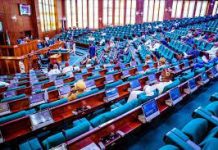#TrackNigeria –For most States in the world, groups that organize regular demonstrations challenging policies and practices of government are often seen as irritants who should be prevented from such action. In situations where such States have not been fully civilized by democratic forces, the tendency is to use excessive force to stop the activities of such demonstrators and abuse their human and civil rights. That is clearly the relationship between the Islamic Movement in Nigeria (IMN) and our security agencies. For too long, a pattern of behaviour has been established in which IMN members engage in protests and security agencies respond with excessive force and kill their members. The greatness of a State is never defined by its use of excessive force against citizens. In situations where such behaviour has emerged for whatever reasons, the State can start rebuilding its credentials by seeking pathways that reduce human carnage. The time has come for the Nigerian State to realise that it’s not a sign of weakness to redefine its relations with the IMN.
On Monday, the IMN once again organised demonstrations in Abuja and once again, security agents opened fire killing Precious Owolabi, a National Youth Service Corps (NYSC) member, serving with Channels Television. He was said to have been hit by a stray bullet while covering the protest. Also killed in circumstances that are not yet clear was Usman Umar, the Deputy Commissioner of Police in charge of Operations in the Federal Capital Territory. A spokesperson for the protesting group has said that 11 Shiites were killed by the police during the Monday protest. They claimed to have no arms to shoot anybody while the police claimed they use firearms to kill. Numerous videos of the event as well as previous ones have not shown any of the protestors carrying firearms so the bullets that killed could only have come from one side of the conflict.
Following the event, the was a animated debate in the House of Representatives in which some members called for the IMN to be banned while others were in favour of Government releasing the leader of the group, Ibraheem El-Zakzaky for peace to reign. The House was unable to take a decision on the matter. It is indeed a delicate matter and we need to reflect deeply and avoid taking precipitate action that would exacerbate the situation. It would be recalled that between December 12th and 14th 2015, hundreds of people were killed in Zaria following clashes between the Nigerian Army and the Islamic Movement in Nigeria (IMN). Since then, regular clashes have occurred as the IMN members
In November last year, an investigation by Amnesty International narrated the horrific use of excessive force by soldiers and police which led to the killing of at least 45 supporters of the IMN over two days, as the Shi’a group held peaceful religious processions around Abuja. The report stated that: “We have seen a shocking and unconscionable use of deadly force by soldiers and police against IMN members. Video footage and eyewitness testimonies consistently show that the Nigerian military dispersed peaceful gatherings by firing live ammunition without warning, in clear violation of Nigerian and international law.” The chilling report concluded that the pattern of shooting “clearly shows soldiers and police approached IMN processions not to restore public order, but to kill.”
It is very sad, disturbing and totally unacceptable that the Nigerian Army and Police Forces established to protect the lives of Nigerians would regularly resort to the use of a section of Nigerians as cannon fodder. The issue at stake is that the Nigerian State and its armed forces has taken the position that the group has no right to organize processions to protest for the release of their leader, Ibraheem El Zakzaky in detention since December 2015 despite repeated federal court orders for his release. It is concerning that the Islamic Movement in Nigeria has been treated as one of the greatest enemies of the Nigerian State. In October 2016, the Kaduna State Government issued a legal notice in relation to the organisation. The order recognized that “Sections 38 and 40 of the 1999 Constitution of the Federal Republic of Nigeria have guaranteed the right to freedom of thought, conscience and religion and also the right to the freedom of association and peaceful assembly to all citizens respectively.” Nonetheless, the Order declared that: “the Society that bears the name, style, guise or nomenclature of the “Islamic Movement in Nigeria”, is hereby declared an Unlawful Society in Kaduna State.” The justifications for the order, according to the Government, are the imperative for the promotion and protection of public safety, public order, public morality or public health; and/or the rights and freedom of all persons in Kaduna State. Should the Federal Government follow suit and prohibit the group, they might be pushed into further radicalization.
IMN members are not innocent players without blame. I served on the Judicial Commission of Inquiry into the clashes between the group and the Nigerian Army in Zaria established by the Kaduna State Government. The Commission found that the Islamic Movement in Nigeria and its leadership had over the years, committed acts in breach of the law, peace and against good neighbourliness. These acts include IMN members committing unprovoked attacks on other citizens, illegal occupation of mosques and public and private buildings. IMN members have also shown total disregard for constituted Authority and contempt towards the Rule of Law and Security Forces. Evidence was also adduced to show that they have engaged in provocative preaching which have seriously provoked other religious movements as well as government and its various arms. The Commission sadly had only one side to listen to as the IMN did not appear before it. The correct attitude would have been to prosecute them when the commit unlawful acts rather than wait and kill them when they demonstrate.
On the Nigerian Army, the Commission ruled that there was no justification for the mass killing of 347 IMN members in December 2015 in Zaria. The Nigerian Army was wrong in “shooting its way” through the blockade set by the IMN that led to the initial killing of seven members of the IMN. While there was justification for conducting the cordon and search on the house of the IMN leader given the claim by the Army of a large stockpile of dangerous weapons, the Commission found out that only one firearm (a locally made pistol) was recovered from the house where the army had claimed there was a large stockpile of dangerous weapons. The weapons recovered were catapults, knives, swords and bows and arrows. These could hardly justify the force and intensity of the two days army show of superior firepower. The Commission therefore concluded that the use of such lethal force was inappropriate. In addition, the Nigerian Army had not followed its own Rules of Engagement and its actions were contrary to international standards. The Commission therefore recommended that steps should immediately be taken to identify members of the Nigerian Army who acted contrary to their Rules of Engagement and professional ethics and participated in the killings of the IMN members and other citizens with a view to bring them to justice by prosecuting them but this has not been done and so many more members of the IMN have been killed since December 2015.
Nigeria is a multi-religious country in which the two main faiths, Christianity and Islam are sub-divided into numerous sects and groups, not all of which accept each other. Our Constitution protects all of them by guaranteeing religious freedom. Any attempt to deprive any religious group from its freedom to practice its religion runs the risk of provoking a major conflict with that group. It is estimated that there are about three million members of this religious community all over the country and it is very irresponsible for government to proscribe their operations. One of the most dangerous acts is for members of a religious community to believe that their religious freedom to exercise their faith according to their belief is being interfered with. In this situation, the detention of their leader, Sheikh Ibraheem El-Zakzaky has been in detention with his wife since December 2015 has become evidence of persecution for them. Members of the IMN believe that the Nigerian Government is trying to kill their leader. So far, the army has killed six out his seven sons. It appears that there is an attempt to push the Shiites in Nigeria to popular revolt. We have enough insurgencies and violent conflicts in Nigeria and should not encourage martyrdom. The Nigerian State and the civil populace should be careful and beware of pushing out country to more violent conflicts.



